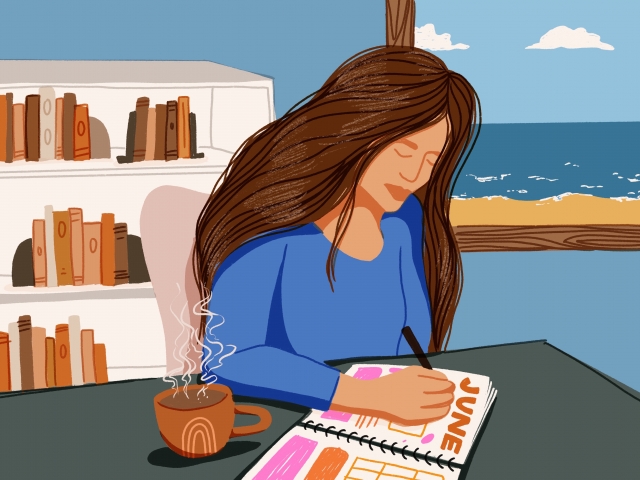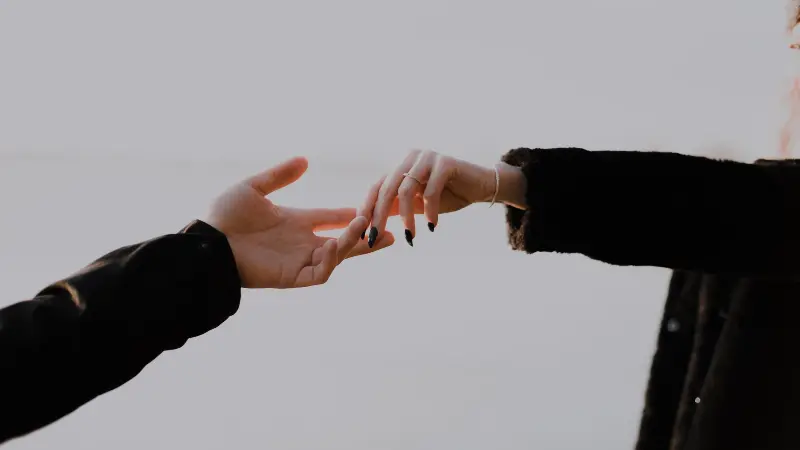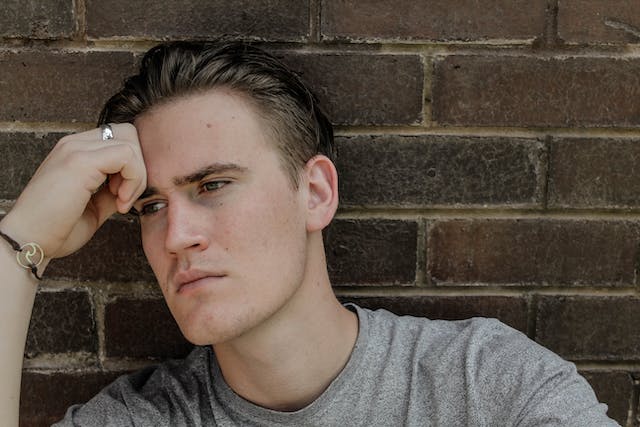Happiness
Episode 67: Taking Small Steps Toward Big Goals

SHUKA KALANTARI: Hi, I’m Shuka Kalantari and I produce The Science of Happiness. We recorded today’s episode before the protests that are giving voice to the pain and anger so many are experiencing right now in response to the murders of unarmed black people in the United States. In an additional episode next week, we’ll be exploring strategies for well-being, resilience, and action in the face of injustice. I hope you enjoy this week’s episode, featuring American Indian author Christine Day, and that you join us next week.
CHRISTINE DAY I haven’t always had a designated space to write, but when my husband and I bought our first house, that was something that was really important. I have this, like, specific desk with my bookshelves all behind me and this huge whiteboard on the wall beside me. My computer’s there. I have this beautiful planner that I love so much that I keep right there. And I basically just keep it really tidy. And, it’s also under a window. So I, like, let a lot of light in.
DACHER KELTNER That’s Christine Day. She’s an American-Indian author whose debut novel, I Can Make This Promise, was an NPR best book of the year and received the American Indian Youth Literature Award. Christine has spent endless hours sitting at her writing desk at her home in the Pacific Northwest.
CHRISTINE DAY It ‘s where I wrote about 90 percent of my second book, The Sea in Winter. It’s a really sacred space.
DACHER KELTNER Christine has spent endless hours sitting at her writing desk at her home in the Pacific Northwest. But then, COVID-19 began.
CHRISTINE DAY Once the pandemic struck, I had a hard time even sitting there. I had some like random books piled up on it. I hadn’t even turned the page in my planner. Some day in March because it felt like it was just too much to go through all of these dates that I had blocked out. And lots of just exciting things I had going on. And the computer was getting all dusty. It was really the messiest it had ever been. I was leaving mugs there. And my whole routine had been disrupted. I stopped getting up at the same time every morning because it was like, well, what’s the point?
DACHER KELTNER When we asked Christine to try a science-tested practice to bring more happiness into her life, she picked a simple one to help her get back to her writing desk. Christine, thanks for joining us today on The Science of Happiness.
CHRISTINE DAY Thanks so much, Dacher. I’m so grateful to be here.
DACHER KELTNER So for our show, you chose to do a happiness exercise called Goal Visualization. That has you pick a manageable goal, then write down how you’re going to accomplish it. And then you spend about 10 minutes a day working on it. What drew you to this practice? Why did you choose this one?
CHRISTINE DAY I mainly chose it because I felt like when the pandemic really struck as of, you know, early March, was when I officially canceled all of my school visits. And I had a lot scheduled throughout March and April. That was really hard for me, because I love talking with all the kids and connecting with them over my book. And I think that, you know, I only met a couple of authors when I was still in school myself. But just seeing them and realizing that they were totally ordinary people was so inspiring to me. And I think that that really helped me understand that this was something I want to pursue myself. You know, losing the chance to be able to engage with people like that, with kids, especially. It really…I was in kind of a funk.
DACHER KELTNER Yeah, it’s disorienting to lose that human touch.
CHRISTINE DAY And the entire world is going through this mass trauma right now. And I just, I wanted to do the goal visualization because I felt like I had to jumpstart my own ability to kind of keep going, to keep going forward in this time where it really feels like, you know, so many people are struggling, and so many people are really stymied by what’s happening. And it’s just this totally weird, unprecedented moment.
DACHER KELTNER And what goal did you set for yourself?
CHRISTINE DAY Mine was to restore order to my writing desk.
DACHER KELTNER Sacred space.
CHRISTINE DAY It’s a really sacred space.
DACHER KELTNER Tell me more about that––why that goal?
CHRISTINE DAY I like to think of myself as a generally sort of tidy, organized person. I just feel much better when I bring some sort of order and structure to my life and to my home. I think it’s especially important since again, I work from home and so I’m here a lot and, you know, it’s just one of those things where it just all of the creative work comes so much easier when I’m not distracted by this long list of things that I need to do just in my regular day to day life or when I have this nice clear space where it’s like I don’t have to, it just the clarity of it, brings clarity to me.
DACHER KELTNER I know in this kind of practice, what’s really important is you you kind of have this goal and you break it down into smaller goals. So how do you pull it off?
CHRISTINE DAY The first thing I did was I cleared off the junk that had piled up on top of it all. All the books that I had just randomly pulled out and was like leafing through. I put them back in their spots in my bookcase. You know, I stopped just leaving my mugs and my other drinks and small plates there. That was the first thing. And then the next thing I did was I sort of recommitted to my planner. I have this planner. Each month has a different sort of color scheme. And there’s all these like illustrations and cute little weekly reminders and basically, I hadn’t done anything with it, and I kind of I reopened to where we were in April. And even if it felt like I hadn’t really done anything too significant, I started writing things down like, you know, I called my mom today. I, you know, renewed my dog’s prescription, her medication. Little things that were just like little reminders that even though it feels like you’ve been stagnant, there are things that you’re doing and you are still connecting with people in the way that you can right now. Just, like, these little gentle reminders to myself. Then I started writing little, like, to-do lists again, where it was like, you’re going to sit and you’re going to write something. Doesn’t have to be great. It doesn’t even have to be something that you’re going to go out and publish, you’re going to write something today. And that actually I mean, it worked. I also, you know, I kind of like got back in the habit of wiping down the dust from the screen and, you know, basically just like these little things to kind of make it feel like that sacred space again. And that actually I mean, it worked.
DACHER KELTNER You know, one of the surprising dimensions to this practice is you would think that it would have you think about really lofty sort of ultimate goals in life, but it really gets you to set goals that are really actionable and practical and immediate. What was it like for you to choose this really straightforward goal of like, “Get my desk clean.”
CHRISTINE DAY That was actually another thing that I really liked about this particular practice, because I do feel like as a writer, so many of my goals, a lot of the projects that I work on, they’re multi-year projects, you know.It’s like I’ll be working on things now that the world probably won’t see until, you know, 2021, 2022, 2023. I basically am constantly thinking about things that feel like they’re in the very distant future and, yeah. And so to have something really small to do, something that was really actionable and something that, you know, theoretically could have been done in an afternoon, but I tried to spread it out over a couple days because the whole three weeks thing. Because I felt like I needed a little bit more time, do it over a couple days to really check in with how I was feeling. Yeah, I basically just felt like that was a really appealing aspect of this because so often my goals take years and years before, I guess, really reap the rewards of it.
DACHER KELTNER It’s kind of reassuring and relieving to have something that you can get done in a short amount of time when you’re a writer. You know, it’s just funny how this COVID-19 pandemic, you know, for all of us or for many of us. It kind of disrupts the most fundamental of our daily rhythms, even simple things like, you know, keeping your space clean and so forth. Did, did you find that starting to enact these actions that get you to these goals kind of helped with the broader project of writing?
CHRISTINE DAY Yeah, I totally think it did. I mean, I was kind of just letting this really vicious, depressing news cycle kind of take over my life in a way that I don’t think anything had really impacted me so deeply. And so once I started kind of forcing myself to commit this energy to restoring this space, I was able to do more things like in other areas of my house as well that had kind of gone neglected. You know, I’ve gotten back into the habit of not leaving dishes in the sink and I’ve gone back into the habit of, you know, reading for fun. Gosh, I know that this is a really easy time for people to sort of slip into those depressive episodes where you just feel disconnected from yourself and like you’re just kind of untethered really.
DACHER KELTNER Yeah. You know, one of the things that when we set goals like you’ve been talking about, Christine, it kind of opens you up to other ways in which you want to change your life. Do the dishes and, you know, keep other parts of the home organized, or new ideas about writing and this is just a time to think of a new path coming out of this pandemic. Are you seeing new ideas for books out of this practice?
CHRISTINE DAY It’s funny because I’ve had this, like, vague idea just hovering in the back of my mind all this time, but I hadn’t really figured it out. And then actually doing this practice and when I stopped looking outward at all the chaos and really turned inward and started, you know, feeling better about myself and feeling more like: this is a rare opportunity we have to really do that inward work, and to really sort of set a new path going forward. And then I wrote this––and this never happens for me––I wrote this really detailed, like, 17-page outline for this book that I had in mind this idea I had in my head three years ago, that is cool. And I’ve since written about 10000 words for it. Right now it just feels so good and so right. It feels like this little escape route I’ve created for myself almost.
DACHER KELTNER A lot of people are feeling like you’ve described, which is where, “I lost the structure. I lost the rhythm to my life. I’m not at work and not seeing friends.” All the things they give us delight and structure to life are really impoverished right now. So what are some of the, kind of, the big lessons from this goal visualization practice you would tell other people about?
CHRISTINE DAY Once you kind of turn the stillness into motion, it changes, its inertia, right? We live in this age where everyone feels this need to be distracted by something. We’re all trying to like just, not sit with the stillness and then let it turn into something else. I think that when we’re just, just trying to distract ourselves or when we’re constantly thinking, “Wow, this really sucks,” or “this is so not how I want to be spending my time,” or “I just don’t feel good right now.” I think that when you kind of let those types of thoughts continue to spiral, that is where you just turn stagnant. And it can be really hard to break out of those…that cycle you kind of create for yourself.
DACHER KELTNER Well said. Christine, I want to thank you for sharing your insights with us today on The Science of Happiness.
CHRISTINE DAY Thank you so much. It was a pleasure.
DACHER KELTNER More on why visualizing small goals can make a big impact ...coming up next.
MYRIAM MONGRAIN We think too much about what goes wrong and not enough about possibilities for a better future.
DACHER KELTNER Myriam Mongrain is a psychology professor at York University in Toronto.
MYRIAM MONGRAIN And sometimes it makes sense to analyze bad events. But to project them into the future can create self-fulfilling prophecies. So one way to keep this from happening is to develop our ability to have a positive vision for our future. And that is the first step in making positive changes in our lives.
DACHER KELTNER Myriam and her team studied people doing the Goal Visualization exercise, along with another one about finding silver linings.
MYRIAM MONGRAIN The intent here is to address negative thinking patterns that are self-defeating ultimately. Undoing, let’s say, pessimistic ideas around specific goals in the person’s day-to-day functioning and giving them means that, say, to think about the situation more constructively.
DACHER KELTNER Each person thought about one short-term goal that they could achieve over three weeks. Then, they wrote down those goals, and the steps they’d take to get there.
MYRIAM MONGRAIN It’s about those small steps that have to do with successful attempts throughout the day and goal completion. So feeling accomplished because, you know, you’ve done what you had hoped to do and you had been able to overcome the barriers that you had anticipated.
DACHER KELTNER Participants showed significant improvements to their mental health.
MYRIAM MONGRAIN It was shown empirically to be quite effective in reducing depression and increasing happiness over a period of six months.
So it’s almost like giving people tools to start using other minds in a way which is more productive and positive. As you become better at focusing on the positive future, you will likely become more optimistic and motivated to take small steps in that direction.
DACHER KELTNER And those small steps are especially meaningful these days.
MYRIAM MONGRAIN Maybe, you know, four months ago, this was just a very quick routine. But now everything is different. And the level of accomplishment that we can hope for on a day-to-day basis has changed substantially. And, you know, the optimistic part of us would say, “Well, you know, this may seem small, but in the current circumstances, it’s really good.” And I think you have to keep the negative judgments about yourself in check and be kind to yourself, because it’s not normal times. It’s not easy. It’s challenging. And so little successes are huge, I think, right now.
DACHER KELTNER The idea is to simplify our ideas of what it means to be successful, so we can see our daily lives through a more hopeful lense.
MYRIAM MONGRAIN This is the secret to long-term happiness, it’s about adopting a different lens, and it takes practice. But it doesn’t take a long time to sit in a new habit. We’re looking at interventions that are successful after being practiced for one week or three weeks. It is relatively a brief amount of time. And it shows people a different way of being and thinking about themselves and it feels good. So the future is really you being happy until then.
DACHER KELTNER If you’d like to try the Goal Optimization practice, visit our Greater Good in Action website at ggia.berkeley.edu.
I’m Dacher Keltner, thanks for joining us on The Science of Happiness.
Our show is highlighting ways to foster health, resilience, and connection during these challenging times. And it’s made possible by donations from listeners like you. If you’d like to support our work, please visit greatergood.berkeley.edu/donate and give what you can. Every donation helps. Thank you.
Our podcast is a co-production of UC Berkeley’s Greater Good Science Center and PRX. Our senior producer is Shuka Kalantari. Production assistance is from Jennie Cataldo and Ben Manilla of BMP Audio. Our associate producers are Brett Simpson and Ariella Markowitz. Our executive producer is Jane Park. Our editor-in-chief is Jason Marsh. Our science director is Emiliana Simon-Thomas.
Share you thoughts with the hashtag #HappinessPod or by emailing us at greater@berkeley.edu.





